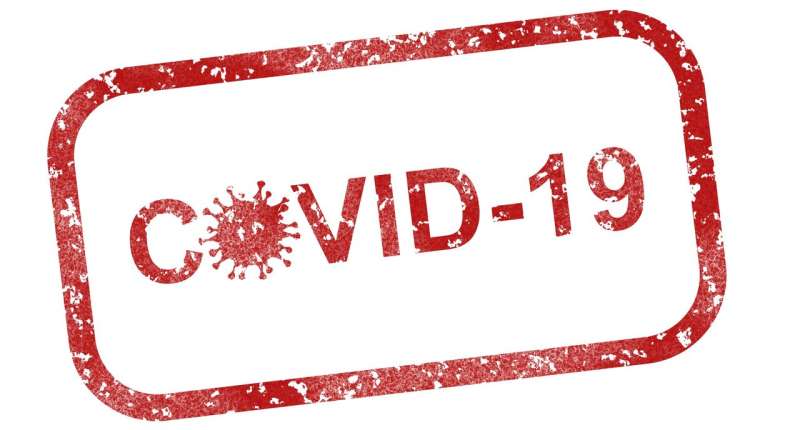
Americans who get seriously ill from COVID-19 in 2021 might have to pay thousands of dollars in bills from their hospitals, doctors and ambulance companies, a new study suggests.
The new University of Michigan analysis, published in JAMA Network Open, has implications for both policymakers and people who haven’t yet gotten vaccinated, as well as people with underlying conditions that put them at risk of a severe breakthrough case of COVID-19.
Most health insurance companies voluntarily waived co-pays, deductibles and other cost-sharing for hospitalized COVID-19 patients in 2020, but many major insurers lifted those waivers in early 2021. Tens of thousands of Americans have gotten severely ill and received hospital or emergency care in the surge of cases that has happened since early 2021.
Based on data from actual patients hospitalized for COVID-19 last year, the study suggests the lack of waivers could mean bills of about $3,800 for people with job-related or self-purchased private insurance, and $1,500 for people with Medicare Advantage plans.
“Many insurers claim that it is justified to charge patients for COVID-19 hospitalizations now that COVID-19 vaccines are widely available,” said lead author Kao-Ping Chua, M.D., Ph.D., a health policy researcher and pediatrician at Michigan Medicine and the Susan B. Meister Child Health Evaluation Research Center. “However, some people hospitalized for COVID-19 aren’t eligible for vaccines, such as young children, while others are vaccinated patients who experienced a severe breakthrough infection. Our study suggests these patients could substantial bills.”
The new study analyzes more than 4,000 COVID-related hospitalizations of people with private insurance and Medicare Advantage insurance between March and September 2020. The data come from the IQVIA PharMetrics Plus for Academics Database, which includes claims data from multiple insurers across the U.S.
The researchers found that the vast majority of patients didn’t have to pay for hospital services such as room-and-board changes, suggesting their plans waived cost-sharing for bills sent by hospitals. However, among the few patients who did have to pay for hospital services—a sign that a waiver wasn’t in place—out-of-pocket costs were in the thousands of dollars.
That amount billed directly to patients is a small portion of the average cost of caring for a hospitalized COVID-19 patient. The study finds that each hospitalization of a person with private insurance cost a total of $42,200 on average, and that each hospitalization of a person with COVID-19 who had Medicare Advantage coverage averaged about $21,400.
Chua and his colleagues originally published the findings as a preprint in June 2021. Since that time, the Kaiser Family Foundation analyzed the status of waivers from the two largest insurers in each state and found that 72% had ended their waivers for COVID-19 hospitalizations by August 2021.
Waivers don’t always cover bills from doctors
The study also suggests that insurer cost-sharing waivers for COVID-19 hospitalizations don’t always cover all hospitalization-related care.
For example, patients in the study frequently received bills from the doctors who cared for patients in the hospital as well as from ambulance companies.
Overall, 71% of privately insured patients received a bill for any hospitalization-related service, with an average size of $788. Among those with Medicare Advantage coverage, 49% received a bill, with an average size of $277.
Chua notes that some insurers may only have waived cost-sharing for the hospital portion of the bill, but believes it is possible that some patients were mistakenly billed for services from doctors and ambulances because insurers implemented their waivers incorrectly or health care providers did not code all aspects of the care as being related to COVID-19.
For people who receive a bill for COVID-19 hospitalization-related care even though their insurer still has a waiver, Chua recommends that they contact their insurer to ask whether the bill was sent in error.
Policy implications
Chua believes that charging patients for any emergency hospitalization is misguided but has particular concerns about charging for COVID-19 hospitalizations.
“One of my main concerns is that the threat of high costs might cause some patients with severe COVID-19 to delay going to the hospital, increasing their risk of death,” he said.
To prevent this possibility, Chua said federal policymakers could require insurers to waive costs of COVID-19 hospitalization-related care throughout the pandemic—just as they already do for COVID-19 testing and vaccination. However, he added that policymakers are unlikely to do this given widespread anger against the unvaccinated.
Hospitals that received special pandemic funding are already barred from billing patients directly for costs beyond what their insurance covers. Hospitals also get reimbursed by the federal government when they care for uninsured COVID-19 patients.
Chua and colleagues also recently published a paper looking at out-of-pocket costs for people over 65 in Medicare Advantage plans who were hospitalized for influenza, as a way to estimate potential out-of-pocket spending for COVID-19 hospitalizations. That paper found the average bill for influenza hospitalization was around $1,000.
Source: Read Full Article